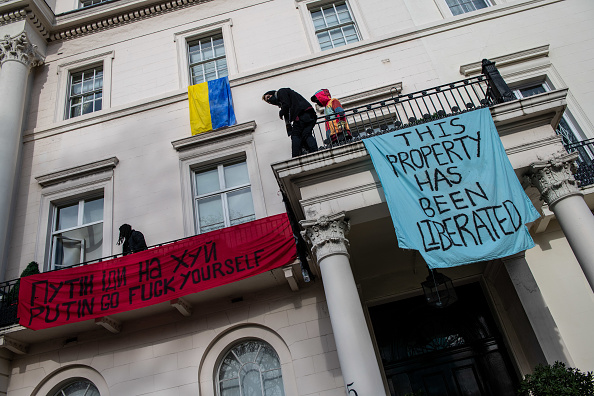Editorial: No sympathy for the sanctioned, but seizures are dangerous path to tread

It is not easy to feel much sympathy for Oleg Deripaska, whose mansion on Belgrave Square was squatted by a group of protestors yesterday, ostensibly to reclaim it as a home for Ukrainian refugees. It is notably more than the Government itself has managed so far with regards to working out where and how the UK may offer a home to thousands of Ukrainians. T
he refugee response so far has all the hallmarks of this government’s approach to most things: administrative complexity, delay, mild dishonesty, and shiny social media graphics. Perhaps that is why various figures in government have alluded to the possibility of more direct action themselves, seizing the property of sanctioned oligarchs with links to Vladimir Putin. Michael Gove was believed to have called for exactly that in a Cabinet meeting last week.
It is of course politically tempting. And it’s also a bad idea.
Property rights matter. The certainty that comes from them underpins the market economy. London, more than anywhere else, understands the value of certainty: from our legal system to Lloyd’s of London, the Square Mile has become a byword for stability and security.
Should the state elect to pursue the option of reclaiming property from oligarchs, there are legal routes to do so. What we should not do is engage in a tit-for-tat with Vladimir Putin and begin playing his own game. As the Institute of Economic Affairs said yesterday, “a government which seizes property without clear and testable grounds is not a good advertisement for the rule of law.”
There are no limits to this newspaper’s disgust at Vladimir Putin’s actions, and our depth of contempt for those who have profited off the back of the raping and pillaging of the Russian economy knows no bounds. But seizing property – either via protestors taking up home or cabinet ministers proposing a widespread reclamation – is a dangerous path along which to tread.
